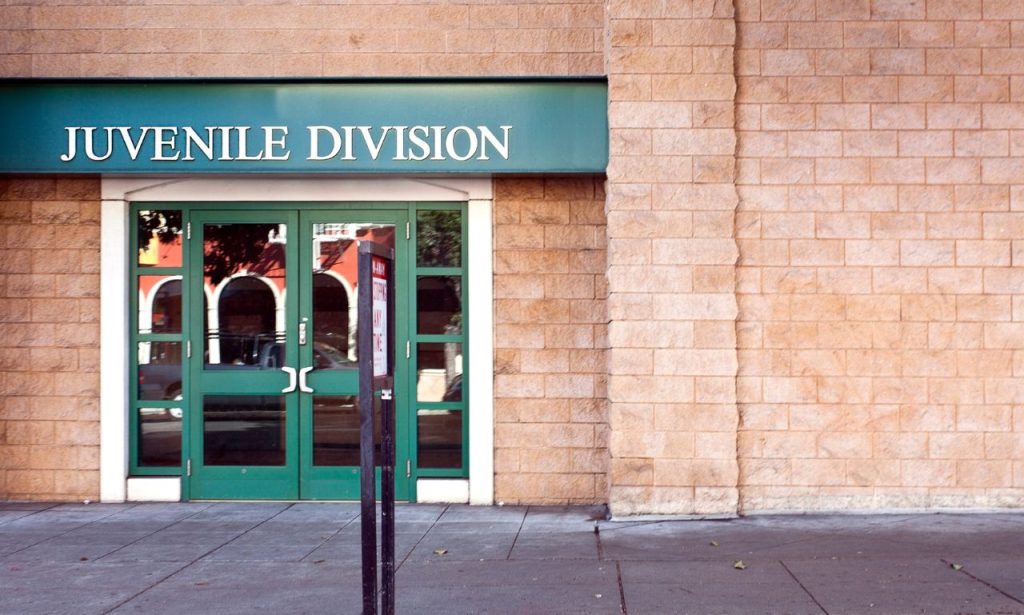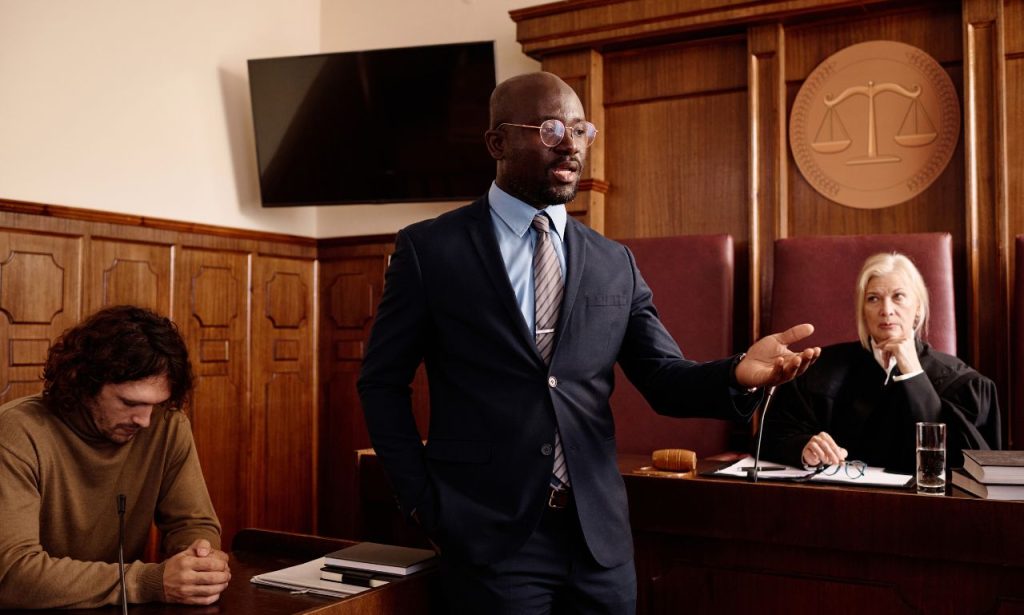Navigating the labyrinth of the juvenile justice system is daunting, especially when a minor faces the grim reality of adult criminal charges. Understanding which offenses can minors be tried as adults is essential for anyone involved in such a challenging situation.
Overview of the Juvenile Justice System
The juvenile justice system is designed to address the criminal behavior of minors in a manner that differs fundamentally from the adult criminal justice system. Its foundational philosophy prioritizes rehabilitation over punishment, reflecting an understanding that young people are still developing and capable of change.
The goal is to steer young offenders away from future crimes and encourage them to become positive contributors to society. This approach acknowledges the importance of addressing the underlying issues that may contribute to criminal behavior, such as trauma, mental health challenges, and lack of support systems.
Typical interventions within the juvenile justice system include various supportive measures:
- Counseling Services: These services provide young offenders with access to mental health professionals who can help them address emotional and psychological issues. Counseling can be instrumental in teaching coping strategies, improving decision-making skills, and fostering better emotional regulation.
- Community Service: This intervention allows young offenders to engage in activities that benefit their communities. Community service helps instill a sense of responsibility and accountability, providing young people with a chance to make amends for their actions while also reinforcing positive behavior through constructive engagement.
- Intervention Programs: These programs are designed to address specific behavioral issues and prevent further criminal activity. They often include educational components, skill-building workshops, and mentorship opportunities, aiming to equip young people with tools to navigate challenges and avoid recidivism.
- Reintegration Programs: Once a young person has completed their time in the juvenile justice system, reintegration programs help them transition back into society. These programs often include job training, educational support, and assistance with family reunification, ensuring that young offenders have the resources they need to succeed outside of the system.
However, the juvenile justice system may shift its focus when a minor commits a severe or violent offense. In such cases, harsher penalties may be considered, and the case may be transferred to adult court. This transition reflects a belief that the juvenile system might not be equipped to handle certain levels of criminal behavior effectively.
Such decisions are often controversial, as they raise questions about the capacity for rehabilitation in young offenders and the implications of subjecting them to adult legal standards. Ultimately, the balance between protecting the community and providing opportunities for reform remains a significant challenge within the juvenile justice system.
Key Legislation Affecting Which Offenses Can Minors Be Tried as Adults

Several pivotal laws influence whether a minor can be tried as an adult. Understanding these statutes is crucial in navigating the legal landscape.
California’s Proposition 21
Enacted in 2000, California’s Proposition 21 significantly altered the juvenile justice framework. Key aspects include:
- Expanded Offenses: Increased the list of crimes eligible for adult court trials, including certain violent felonies and sex crimes.
- Prosecutorial Discretion: Granted prosecutors the power to file charges against juveniles directly in adult criminal courts without a fitness hearing.
- Impact on Serious Offenders: Aimed to hold juvenile offenders accountable for severe crimes like first-degree murder and aggravated assault.
Senate Bill 1391
Contrastingly, Senate Bill 1391, effective from 2019, introduced reforms favoring rehabilitation:
- Age Restrictions: Prohibited 14 and 15-year-olds from being tried as adults except in rare cases.
- Focus on Rehabilitation: Emphasized the minor’s potential for rehabilitation within the juvenile system.
- Reduced Transfer to Adult Courts: Aimed to keep younger teens out of adult facilities, recognizing the detrimental effects of adult prison on youth.
Criteria for Determining Which Offenses Can Minors Be Tried as Adults
Determining whether a minor should face adult charges involves several criteria:
- Age of the Minor: Typically, minors aged 16 or 17 are more likely to be considered for adult trials.
- Severity of the Offense: Violent felonies and heinous crimes increase the likelihood.
- Prior Juvenile Offenses: A history of delinquent behavior may influence the decision.
- Potential for Rehabilitation: Courts assess whether the juvenile system can effectively rehabilitate the minor.
Types of Offenses That Lead Minors to Be Tried as Adults
Not every offense will push a minor into adult court. However, certain crimes are deemed severe enough to warrant such action.
Felonies
Serious felonies are primary candidates for adult trials. Examples include:
- First-Degree Murder: Premeditated killing with special circumstances.
- Voluntary Manslaughter: Killing without premeditation but with intent.
- Aggravated Mayhem: Intentionally causing permanent disability or disfigurement.
- Violent Felonies: Such as aggravated assault, armed robbery, and violent sexual offenses.
Certain Misdemeanors
While less common, some misdemeanors can lead to adult charges, especially when they involve:
- Bodily Harm: Acts resulting in significant injury.
- Sexual Offenses: Including sexual assault, oral copulation, and sexual penetration.
- Repeated Offenses: Persistent delinquent behavior indicating a pattern.
The Process of Transferring Minors to Adult Courts
Transferring a minor to adult court is a structured process, ensuring that the decision is justified.
Fitness Hearings in Juvenile Court
A fitness hearing, also known as a transfer hearing, evaluates:
- Criminal Background: Prior offenses and juvenile delinquency.
- Circumstances of the Offense: Nature and severity of the alleged crime.
- Potential for Rehabilitation: Likelihood of benefiting from juvenile rehabilitative services.
- Mental and Emotional Maturity: Assessed by psychological evaluations.
During the hearing, the judge considers:
- Reports from Probation Officers
- Testimonies from Psychologists
- School Records and Behavioral Assessments
Legal Representation in Transfer Hearings
Having experienced juvenile defense attorneys is critical. Their roles include:
- Advocacy: Presenting compelling arguments to keep the case in juvenile court.
- Evidence Presentation: Highlighting the minor’s potential for rehabilitation.
- Rights Protection: Ensuring the minor’s legal rights are upheld throughout proceedings.
Dedicated attorneys can significantly influence the hearing’s outcome by emphasizing factors that favor the minor remaining within the juvenile system.
Impact of Being Tried as an Adult
The consequences of an adult trial for a minor are profound and far-reaching.
Potential Sentencing Outcomes
In adult court, minors face sentencing on par with adults, which may include:
- Life Imprisonment: Possibility of life sentences without parole, especially for severe crimes like capital murder.
- Harsher Punishments: Longer sentences than those typically given in juvenile courts.
- Adult Correctional Facilities: Serving time in adult prisons rather than juvenile detention centers.
Long-term Consequences for Minors
An adult conviction carries enduring repercussions:
- Criminal Records: Permanent record that can affect future employment and education opportunities.
- Social Stigma: Challenges in reintegrating into society due to the label of a criminal.
- Loss of Civil Rights: Potential disenfranchisement, including the right to vote or own firearms.
- Increased Recidivism: Studies show higher rates of reoffense among juveniles tried as adults.
Advantages and Challenges of Being Tried as an Adult
The shift to adult court presents both benefits and obstacles, depending on perspective.
Advantages for the Prosecution
From the prosecution’s standpoint, adult trials offer:
- Harsher Penalties: Ability to seek maximum sentencing, providing a sense of justice for severe crimes.
- Trial by Jury: Opportunity to present the case before a jury, which may be more sympathetic to victims.
- Accountability: Holding offenders fully responsible under adult criminal statutes.
Challenges for Minors and Defense Strategies
For the defense, adult trials pose significant hurdles:
- Less Rehabilitation Focus: Adult courts prioritize punishment over rehabilitation, reducing access to supportive services.
- Complex Legal Proceedings: Navigating adult criminal courts requires robust legal strategies.
Defense Approaches: Attorneys may focus on:
- Mitigating Sentences: Arguing for leniency based on the minor’s age and potential for change.
- Alternative Sentencing: Proposing options like residential facilities or community-based centers.
- Highlighting Rehabilitation Efforts: Demonstrating proactive steps taken by the minor, such as participation in counseling services.
Appeals Process in Adult Court Trials

If convicted, minors have the right to appeal. The appeals process involves:
- Filing a Notice of Appeal: Within a specific timeframe post-conviction.
- Grounds for Appeal: Includes legal errors, insufficient evidence, or violations of rights.
- Legal Representation: Criminal defense attorneys experienced in appellate law are essential.
Potential Outcomes:
- Reversal of Conviction
- Reduced Sentencing
- Retrial
The appeals process can be lengthy and complex but serves as a crucial avenue for seeking justice and fair treatment.
Conclusion
Grasping which offenses can lead minors to be tried as adults highlights the pressing need for juvenile justice reform. Balancing accountability with rehabilitation is vital. Society must strive to:
- Prevent Future Crimes: By addressing the root causes of juvenile delinquency.
- Offer Rehabilitation Opportunities: Prioritizing programs that promote positive development.
- Ensure Fair Treatment: Protecting minors’ rights within the legal system.
Reach out now and let experienced professionals guide you through this challenging journey.
ALSO READ: Can You Make Multiple Offers on Different Houses?
FAQs
No, the U.S. Supreme Court ruled in Roper v. Simmons (2005) that imposing the death penalty on individuals who were under 18 at the time of their crimes violates the Eighth Amendment’s prohibition on cruel and unusual punishments.
A minor’s mental health can significantly impact the court’s decision. Evidence of mental illness or developmental disabilities may support arguments against transferring to adult court, emphasizing the need for specialized rehabilitative services.
Yes, some states have mandatory waiver laws requiring minors of specific ages charged with certain offenses to be tried as adults. For example, in Pennsylvania’s second-degree murder law, minors involved in felony murder can be automatically tried in adult court.
While limited compared to the juvenile system, some support systems include:
Legal Professionals: Experienced attorneys specializing in juvenile defense.
Social Services: Programs aimed at rehabilitation within adult facilities.
Family Support: Crucial for emotional and psychological well-being.


